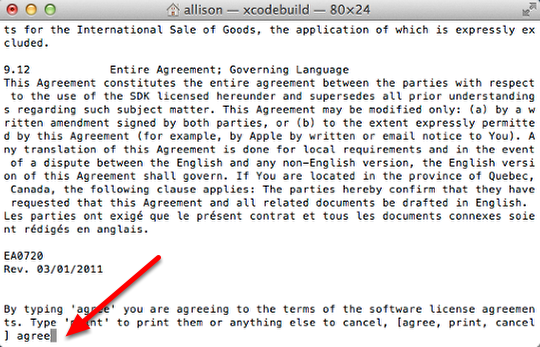

- #MACPORTS INSTALL PACKAGE HOW TO#
- #MACPORTS INSTALL PACKAGE MAC OS X#
- #MACPORTS INSTALL PACKAGE FULL#
- #MACPORTS INSTALL PACKAGE SOFTWARE#
Other desktops including XFCE and NextStep are also represented. From GNOME's GnuCash to KDE's Amarok, you won't miss anything. GNOME/KDE Software: If you're a desktop Linux user, take your pick from among the 325 GNOME ports and 274 KDE ports.Servers: Standard FOSS server stacks including AMP ( Apache web server, MySQL/Maria database server, and PHP/Python), SSH, SAMBA, and and the BIND DNS server are available.If you're looking for a particular program, try browsing at the link above or using the "port search" command (more on that later). Others are arguably not as good but are still free. You'll find some apps that are as good or better than commercial counterparts, such as the Emacs and VIM text editors. Not only that, but they're installed and maintained in a very Unix-like but still integrate nicely with macOS. If you're familiar with Linux, there's a good chance your favorite apps are among the 19,000+ available.
#MACPORTS INSTALL PACKAGE FULL#
The MacPorts repository is full of all the same great open source applications you'll find on Linux and related operating systems. You can even re-build the entire system from source with the "make world" command. The below image shows the contents of the port for KDE's Amarok music player. The makefile literally builds the application from scratch: downloads the source code, compiles it, and configures it.
#MACPORTS INSTALL PACKAGE HOW TO#
#MACPORTS INSTALL PACKAGE SOFTWARE#
In the FreeBSD world, the ports system helps users compile software from source: MacPorts is the collection of that software, as well as the application that acts as a "store" or installer. This makes it very easy for developers to create a "port" of free software applications that will run on Macs.
#MACPORTS INSTALL PACKAGE MAC OS X#
Actually, it descends from the Ports system of FreeBSD.ĭid you know Mac OS X started its life as a fork of FreeBSD called Darwin? Even today macOS has a solid UNIX-based foundation. It's very similar in function and use to the Red Hat Package Management (RPM) system and Advanced Package Tools (APT), which install DEB packages on Linux.

I found the same with the llvm-3.1 package.MacPorts is your "app store" for all this great software. sudo port install ntfs-3g then finds the file i have downloaded and does not try to download it again. To achieve the same result, I downloaded and put it in /opt/local/var/macports/incoming/verified. opt/local/var/macports/distfiles/ntfs-3g/ntfs-3g_ntfsprogs-2012.1.15.tgz The port distfiles ntfs-3g gives me -> Distfiles for ntfs-3g Make sure that you have all the distfiles belonging to a given port as many ports have more than one. Proceed to install using sudo port install octave. Put the downloaded source package in that folder. Go to /opt/local/var/macports/distfiles and create a directory called octave if it doesn't exist. The links below that are a number of mirrors you could download from using your download manager. Inside the square brackets is the name of the file to download, followed by the path that MacPorts will search for the file. opt/local/var/macports/distfiles/octave/octave-3.2.4.tar.gz

You'll get the following output: -> Distfiles for octave List the distfiles required for the port by running port distfiles octave. For test purposes, I'll use the octave port.


 0 kommentar(er)
0 kommentar(er)
